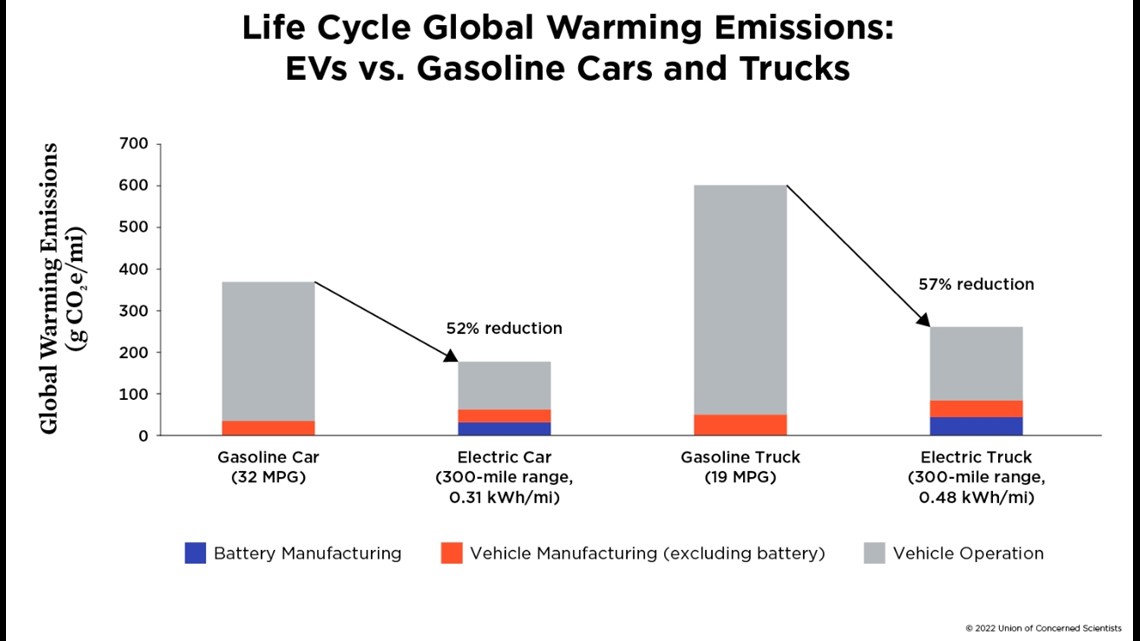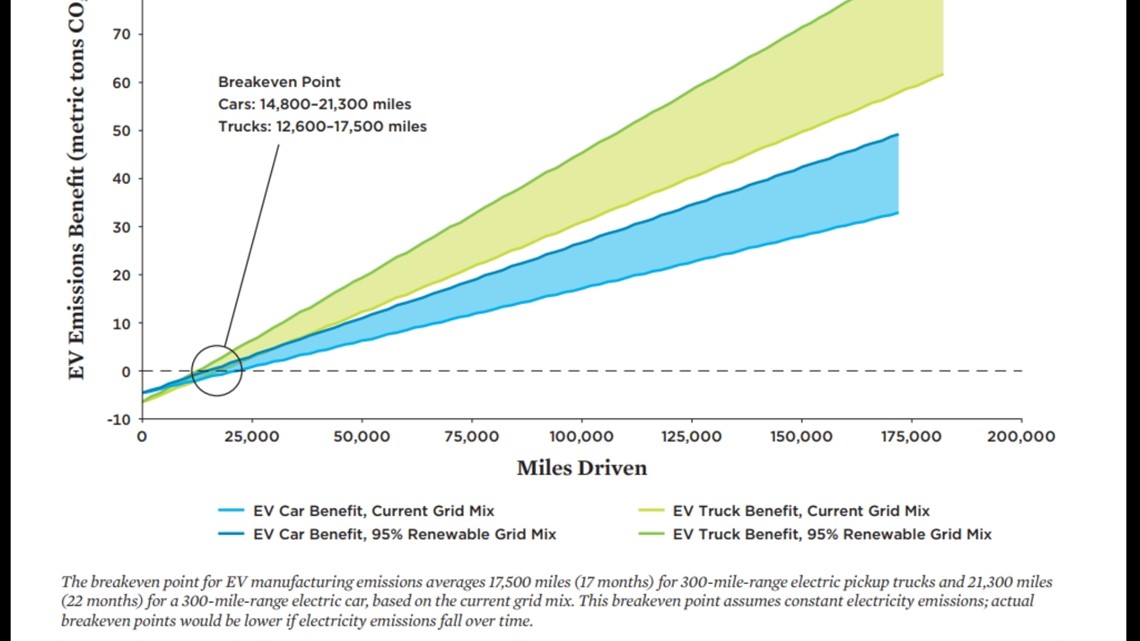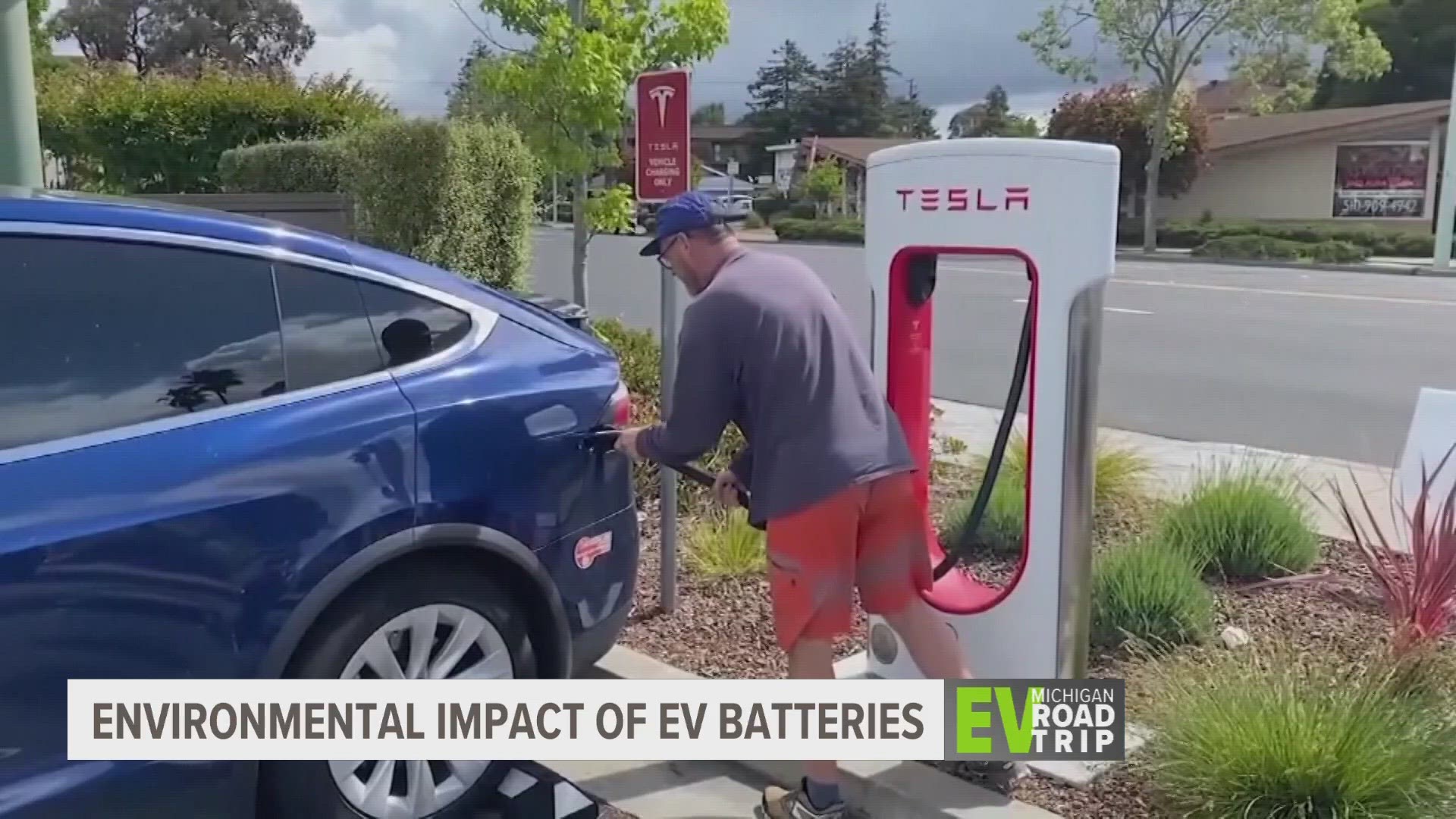PORT HURON, Mich. — One of the most common claims surrounding electric vehicles is that they are actually worse for our environment—this is a myth.
Electric vehicles are very different from internal combustion vehicles in the fact that they have no engines and the batteries used in EVs do have a large environmental footprint—but nowhere near the carbon footprint of a regular car.
We spoke to several experts, who spent the last 10 years studying the environmental impacts of EVs who say otherwise.
Don Anair, a research director of UCS Clean Transportation Program, stated, "In our most recent assessment – no matter where you live on average across the country – driving the average electric vehicle produces about half the emissions of driving the average gasoline vehicle."
So then where does the misconception come from?
Jessica Dunn, who received her Ph.D. in Energy Systems from UC Davis, explained, "From a lifecycle perspective, electric vehicles have a much lower impact than a gasoline vehicle."
The key term is lifecycle. At the start of making an EV, they are worse for the environment due to the battery-making process.


"Batteries are really the biggest difference between the two vehicles. So, we look really closely at battery manufacturing. It turns out that it is more energy intensive, and more pollution associated with making the batteries than making the gasoline vehicle," said Anair.
So brand new, off-the-lot EVs actually do have more emissions and pollution associated with them. But, it doesn’t take long for that statistic to change.


What we found in the latest assessment, for a passenger EV, is that within two years of driving that vehicle, you will make up for the difference in emissions and then after that, you are in the clear. And that’s assuming the average electrical grid. If you have solar on the grid and you're choosing that through your electrical provider, the quicker that’s going to get.
This is because gas-powered vehicles are emitting pollution every day you drive and the level of pollution associated with the extraction of oil and the refining of gasoline amplifies that.
To take it one step further, EV batteries can be repurposed and recycled.
"Electric vehicle reaches the end of its life after, say, 10 to 15 years, before recycling, actually, the battery can be repurposed. And the battery can then be used for stationary storage. So, this means that it can be used to support solar arrays, it can charge in the middle of the day, and then be released in the evening, when there isn't as much electricity being generated. And then as you mentioned, recycling, you know, all of the batteries can be recycled no matter if they were repurposed, or if they weren't," explained Dunn.
Their study went on to say that a regular car would need to get 91 miles per gallon to equal the global warming emissions of an EV. This completely debunks the myth that EVs are just as bad for the environment as IC vehicles.
Click here to see the complete study.
Do you have questions about electric vehicles? Send them our way by texting "car" to 616-559-1310.
►Make it easy to keep up to date with more stories like this. Download the 13 ON YOUR SIDE app now.
Have a news tip? Email news@13onyourside.com, visit our Facebook page or Twitter. Subscribe to our YouTube channel.

